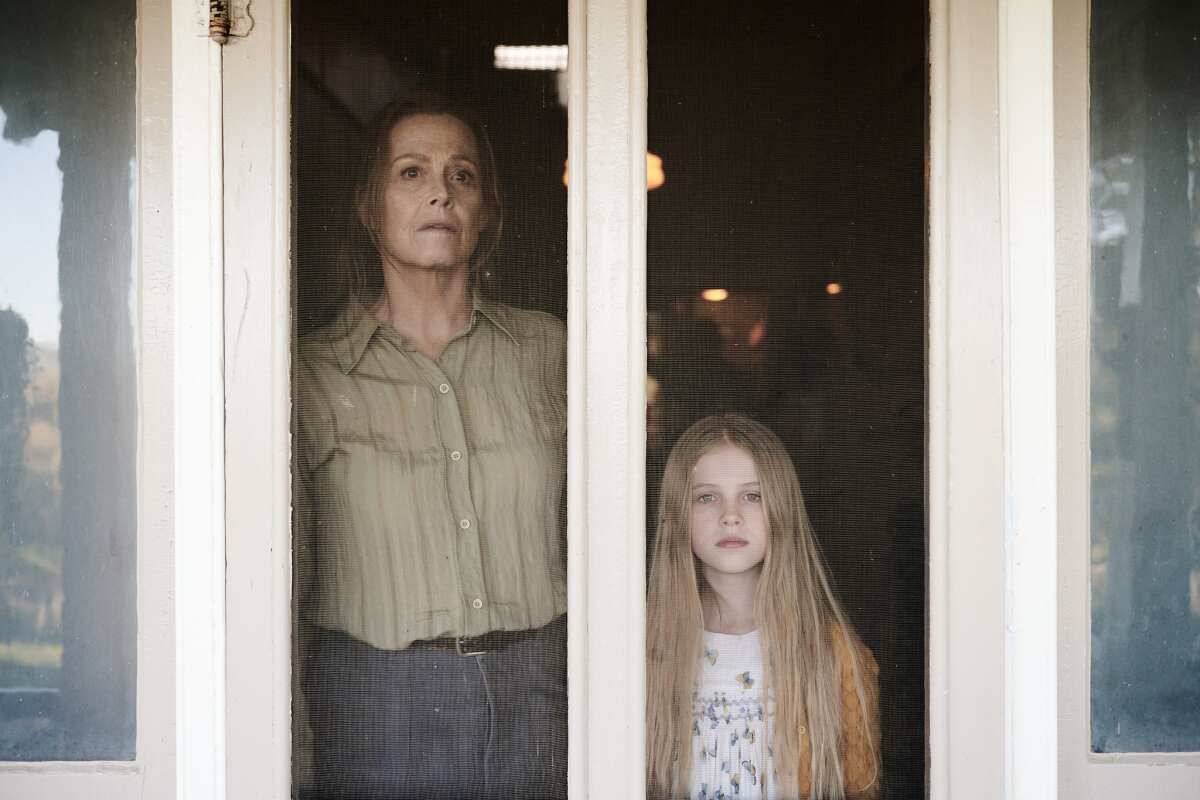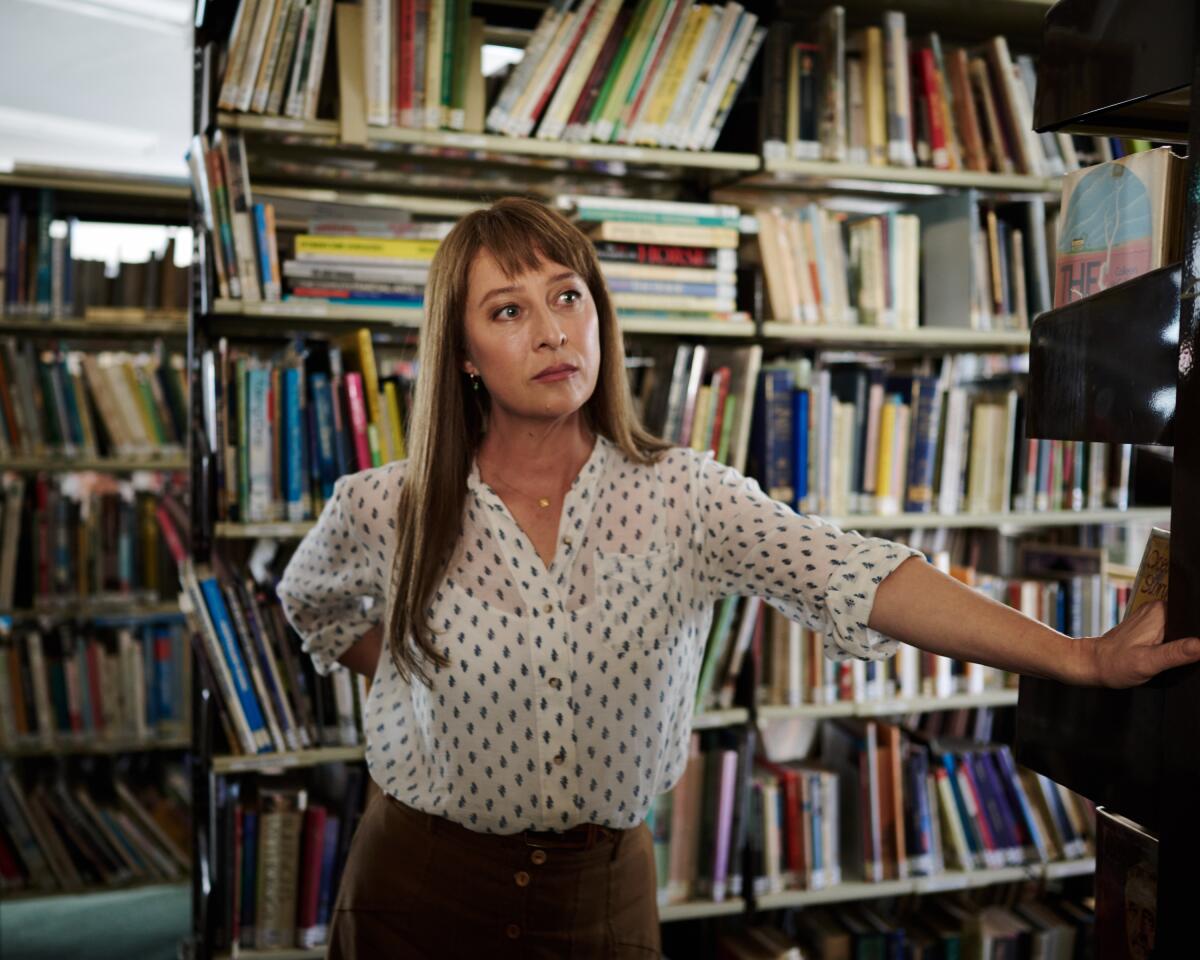‘The Lost Flowers of Alice Hart’ review: In this moving drama, mysteries abound

Bad communication is a staple of television: Omitted facts, half-truths, outright lies and genuine misunderstandings — genuine, that is, except in the sense that a writer has forced them upon the characters in order to complicate their lives — power dramas and comedies alike. My own quixotic desire for programs where people say what they ought to say when they ought to say it is, from a dramatic standpoint, of course completely wrongheaded. That doesn’t stop me from shouting at the screen when characters refuse to speak up or tell the truth. Honesty, as all these shows demonstrate by negative example, is the best policy.
“The Lost Flowers of Alice Hart,” a new miniseries (imported from Australia, based on a novel by Holly Ringland, starring Sigourney Weaver and beginning Friday on Prime Video), is a cavalcade of kept secrets, withheld information, misrepresentations and action arranged so that the reveals keep on coming, throughout its slow-moving seven-episode length. The series, which is sensitively written, expertly performed by actors young and old, and beautifully shot — if you cut out the people, it might serve as a promotion for the Australian tourist board — is in no rush to give up its mysteries, and by drawing out the drama, what’s obvious in the story comes off as proportionally more subtle. The mood is melancholic, redoubled by long, drawn-out notes from the strings and minor-key piano arpeggios; passages of happiness feel fragile, fleeting, untrustworthy. In the end, though — or perhaps because — it does not spare the melodrama, I found it quite moving.
If lies, omissions, etc., are more than usually at the center of things, with characters not being exactly who they are or even think they are, the actual subject of “Alice Hart” is trauma and the lasting (but not unconquerable) effects of domestic violence — which one feels in the air from its first, deceptively yet suspiciously idyllic opening scenes. We begin with Clem (Charlie Vickers), wife Agnes (Tilda Cobham-Hervey), who is pregnant, and their 9-year-old daughter, Alice (Alyla Browne), living in what looks like happy, picturesque, bucolic isolation. Until the bruises start to show.

Alice, who seems to have no other human contact, likes books (the power of stories is a repeating theme of the series, which likes a fairy-tale trope, and whose themes and metaphors are never less than explicit), and one rare day when her parents are both gone, she walks barefoot into town and into the library — a place her mother has promised but never managed to take her. Librarian Sally (Asher Keddie) notices the bruises, and Alice, noticing her noticing, takes off, as Sally gets on the phone to the police, in the person of her husband, John (Alexander England). Back home, Alice investigates the shed where Clem carves lifelike wooden sculptures, accidentally starts a fire and runs back to the house as her parents return.
We jump ahead a little in time — leaving space for a mystery, though, as with much of the series, a mystery one might work out before the characters do — as a bigger fire is consuming the house, Clem is dead, and Agnes, not long for this world, and Alice, both beaten and broken, are being carried away on stretchers.
Enter Weaver as Alice’s grandmother, June, whom Alice — recovering but refusing or unable to speak — has never met, but who has determined, over Sally’s strenuous objections, to carry her off to Thornfield, a vast flower farm that doubles as a sanctuary for abused women, a place “where wildflowers are allowed to bloom.” Here we meet June’s wife, Twig (Leah Purcell), and their adult adopted daughter, Candy (Frankie Adams), found in the bulrushes, like Moses.
Flowers — they’re in the title, notice — exist here both as metaphors and things in themselves. The women are called Flowers; there is, working in the other main metaphor, a literal book of flowers, full of botanical drawings, each variety with its own special meaning — “it’s our very own secret language” — like Ophelia’s rosemary for remembrance and pansies for thoughts. (Continuing that thread, there is a river on the grounds, with somewhat ominous associations.) It’s significant that Clem cuts up dead trees to create imitations of life, whereas the women nurture actually living things.

After a few episodes, we leap 14 years into the present, and Alice, now played by Alycia Debnam-Carey, is escaping what one had assumed to be paradise — but maybe not — and lighting out for the territories. She’ll find an occupation — as a park ranger — a gaggle of friends, who like to dance and party, and a whole new set of scenic views. She also finds Dylan (Sebastián Zurita), a fellow ranger who anyone can see almost from the moment he appears is trouble. (Unlike the female characters, most of whom have been shaped by one sort of trauma or another, these men are presented without context, and I suppose you could say they don’t deserve one — not quite one-note characters, the better to put us off-guard, but basically engines of violence, not humans with a chance of recovery.) Twig sets out from Thornfield to find Alice, while things progress in the lives of Sally and John and June.
The cast is uniformly excellent, with Browne and Debnam-Carey, as young and young-adult Alice, carrying a lot of weight. But it’s a special treat to see Weaver, who does not overplay her assumed Australian accent, in such a substantial part; if the series seems a little long, one may at least appreciate the greater time it affords us to spend in her company. Her June, who seems stubbornly fixed at first, proves more mercurial, her taciturn toughness and controlling nature products of a finally revealed backstory that will lead to a much-belated reckoning with herself. Eventually, as in any satisfying story, the truth will out.
More to Read
The complete guide to home viewing
Get Screen Gab for everything about the TV shows and streaming movies everyone’s talking about.
You may occasionally receive promotional content from the Los Angeles Times.







